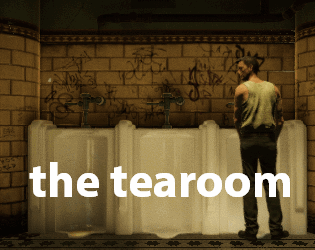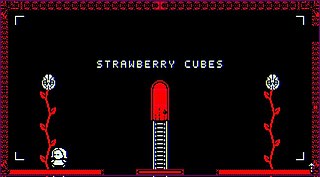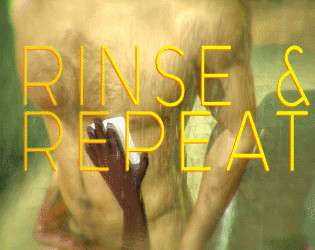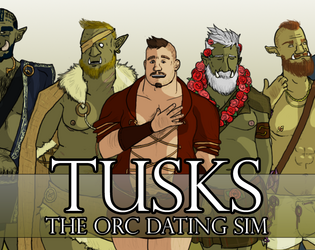Game studies, also known as ludology, is the study of games, the act of playing them, and the players and cultures surrounding them. It is a field of cultural studies that deals with all types of games throughout history. This field of research utilizes the tactics of, at least, folkloristics and cultural heritage, sociology and psychology, while examining aspects of the design of the game, the players in the game, and the role the game plays in its society or culture. Game studies is oftentimes confused with the study of video games, but this is only one area of focus; in reality game studies encompasses all types of gaming, including sports, board games, etc.

A facial recognition system is a technology potentially capable of matching a human face from a digital image or a video frame against a database of faces. Such a system is typically employed to authenticate users through ID verification services, and works by pinpointing and measuring facial features from a given image.
Lesbian, gay, bisexual, transgender and queer (LGBTQ) characters have been depicted in video games since the 1980s. Throughout the history of video games, LGBTQ characters have been almost nonexistent for a long time, reflecting the overall heteronormativity of the medium. While there has been a trend towards greater representation of LGBTQ people in video games, they are frequently identified as LGBTQ in secondary material, such as comics, rather than in the games themselves. Often, LGBTQ characters and themes, when they are included, are underrepresented, minimized, or watered down. Queer games and characters have also often found themselves being the subjects of cultural crossfires or moral panics. In 2018, Sam Greer of GamesRadar+ found only 179 games commercially released games with any LGBTQ representation, only 83 of which have queer characters who are playable characters, and only 8 of those games feature a main character who is pre-written as queer as opposed to them being queer as an option.
Gary William Kinsman is a Canadian sociologist. Born in Toronto, he studies lesbian, gay, bisexual, and transgender issues. In 1987, he wrote a text on LGBTQ social history, Regulation of Desire, reprinted in 1995. In 2000, he edited and co-authored a second work, on Canadian federal government surveillance of marginal and dissident political and social groups, Whose National Security? In 2010, Kinsman's newest book, The Canadian War on Queers: National Security as Sexual Regulation, co-written with Patrizia Gentile, was published by University of British Columbia Press and released on 1 March.

Gaymer and gay gamer are umbrella terms used to refer to the group of people who are identified as homosexual and have an active interest in video games or tabletop games, also known as gamers. Bisexual, and transgender gamers are often categorized under this term.

Tumblr is a microblogging and social networking website founded by David Karp in 2007 and currently owned by American company Automattic. The service allows users to post multimedia and other content to a short-form blog.

Anna Anthropy is an American video game designer, role-playing game designer, and interactive fiction author whose works include Mighty Jill Off and Dys4ia. She is the game designer in residence at the DePaul University College of Computing and Digital Media.
The history of lesbian, gay, and bisexual people in China spans thousands of years. Unlike the histories of European and European-ruled polities in which Christianity formed the core of heavily anti-LGBT laws until recent times, non-heterosexual states of being were historically treated with far less animosity in Chinese states. For a period of the modern history of both the Republic of China and People's Republic of China in the 20th century, LGBT people received more stringent legal regulations regarding their orientations, with restrictions being gradually eased by the beginning of the 21st century. However, activism for LGBT rights in both countries has been slow in development due to societal sentiment and government inaction.
Fight for the Future is a nonprofit advocacy group in the area of digital rights founded in 2011. The group aims to promote causes related to copyright legislation, as well as online privacy and censorship through the use of the Internet.
Samuel James Gallagher is an English footballer who plays as a striker for EFL Championship club Stoke City. Originally a member of the Plymouth Argyle youth academy, Gallagher joined Southampton in 2012 and earned a call-up to the first team at the beginning of the 2013–14 season. He spent the 2017–18 season on loan to EFL Championship club Birmingham City.
Robert Yang is an academic, artist, and indie video game developer, whose work often explores gay subculture and the boundary between video games and art. His work focuses particularly on sociologically deviant and sometimes illegal sexual behavior. His projects include Borges adaptation Intimate, Infinite and The Tearoom, a game that involves soliciting sex in a public toilet. He is a former member of faculty at NYU Tisch School of the Arts's Game Center and curated their annual indie game exhibition in 2015.

The Tearoom is a 2017 game by independent developer Robert Yang. Described by the creator as a "historical public bathroom simulator", The Tearoom is an erotic game that simulates the experience of participating in 'tearoom' public sex, also known as cottaging, with the goal of avoiding interference with the police. Taking inspiration from the 1970 non-fiction book Tearoom Trade and a 1962 public sex bust by police in Mansfield, Ohio, Yang developed the game as a political commentary on the past and present traditions of queer sex and persecution of sex by police. Upon release, The Tearoom received attention from publications and academics about the relevance of its historical subject matter and the effectiveness of its gameplay to convey themes of uncertainty and danger.
Straightwashing is portraying LGB or otherwise queer characters in fiction as heterosexual (straight), making LGB people appear heterosexual, or altering information about historical figures to make their representation comply with heteronormativity.

Strawberry Cubes is a 2015 video game by American independent developer Loren Schmidt, developed as an open-ended platformer that makes heavy use of glitches in its visual presentation and mechanics. The game received praise for its experimental and explorative qualities, and was showcased at several independent gaming events and galleries, including IndieCade.

Stick Shift is a 2015 video game by independent developer Robert Yang. Described by Yang as "an autoerotic night-driving game", the game is an erotic video game and art game in which players "pleasure a gay car". Created following the development of games featuring more "uncanny" characters, Yang aimed to create a game that explored eroticism through the facial expressions of a player character, using the "humorously masculine" innuendo of manual driving as a metaphor. Upon release, Stick Shift received positive attention, with some critics expressing amuseument and bewilderment at the game's absurd and erotic concept, and others praising the game's uniqueness, with several drawing comparisons to the themes of the J.G. Ballard novel Crash.

Rinse and Repeat is a 2015 erotic video game by independent developer Robert Yang, described as a "steamy first person showering game about giving a hunk a helping hand". Developed by Yang as a "fantasy about consent and safety", Rinse and Repeat features a procedurally generated schedule in which players are only able to interact with their virtual partner at times set by the game. The game received positive reception from reviewers, with praise directed to the game's use of time and waiting to represent consent and respect, and as a homoerotic commentary on the male experience of communal showering.

Tusks: The Orc Dating Sim is a 2018 visual novel and dating simulator by Scottish independent developer Mitch Alexander. The game sees the player accompanying and romancing a band of travelling orcs. First published in 2015 for a game jam, Alexander based the design of the game on his native Scotland and his own experiences, with a desire for the game to subvert queer stereotypes by deconstructing the orc archetype in fantasy literature. Tusks received attention from several publications upon the release of its demo, with critics praising the inclusive design of diverse body types in a dating simulator game, and the relevance of its themes characterisation to broader queer experiences and identities.










